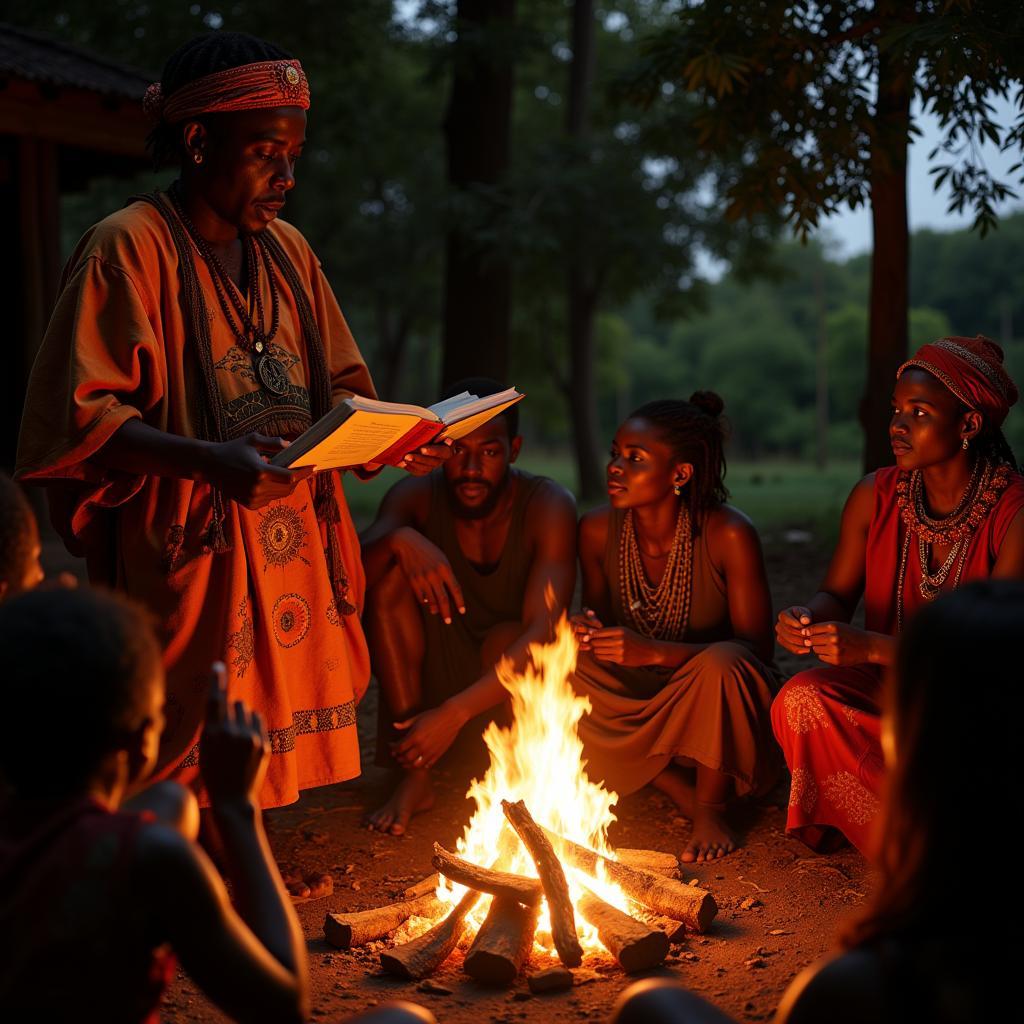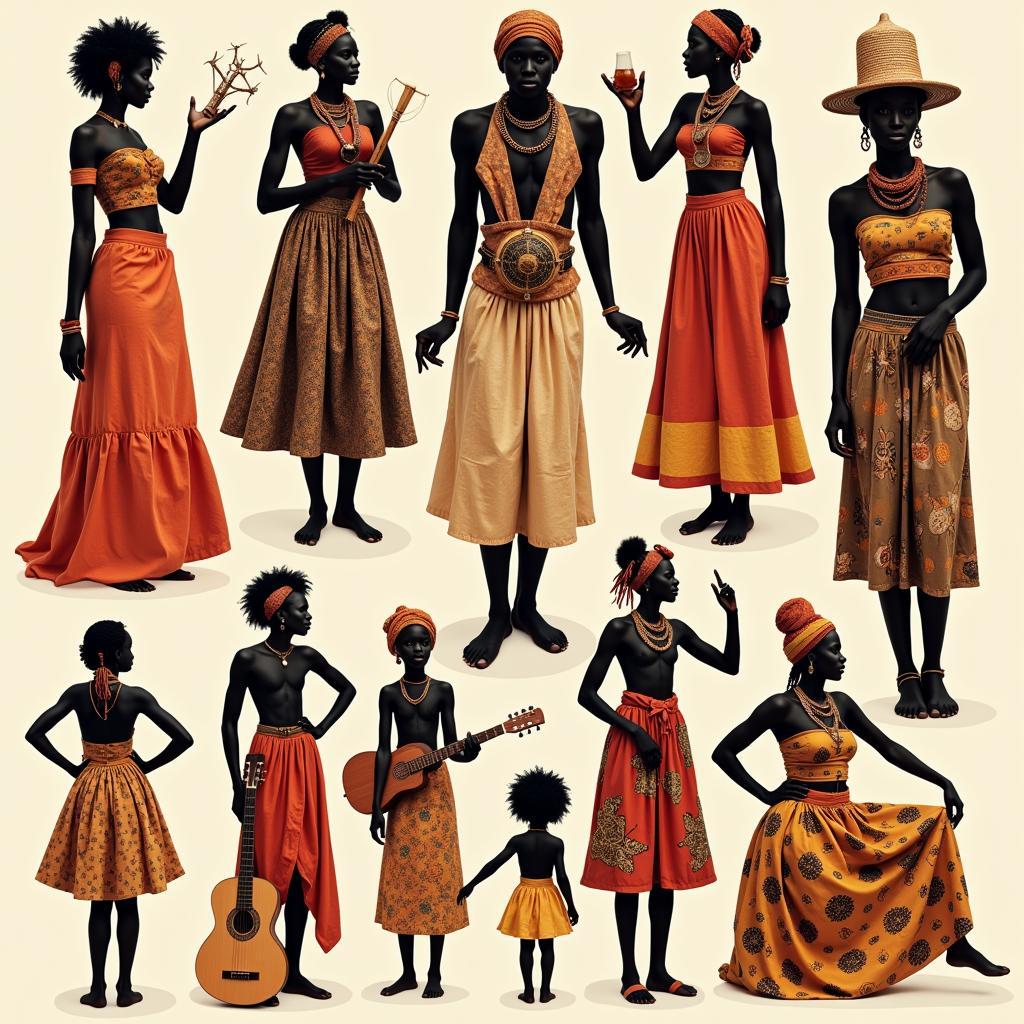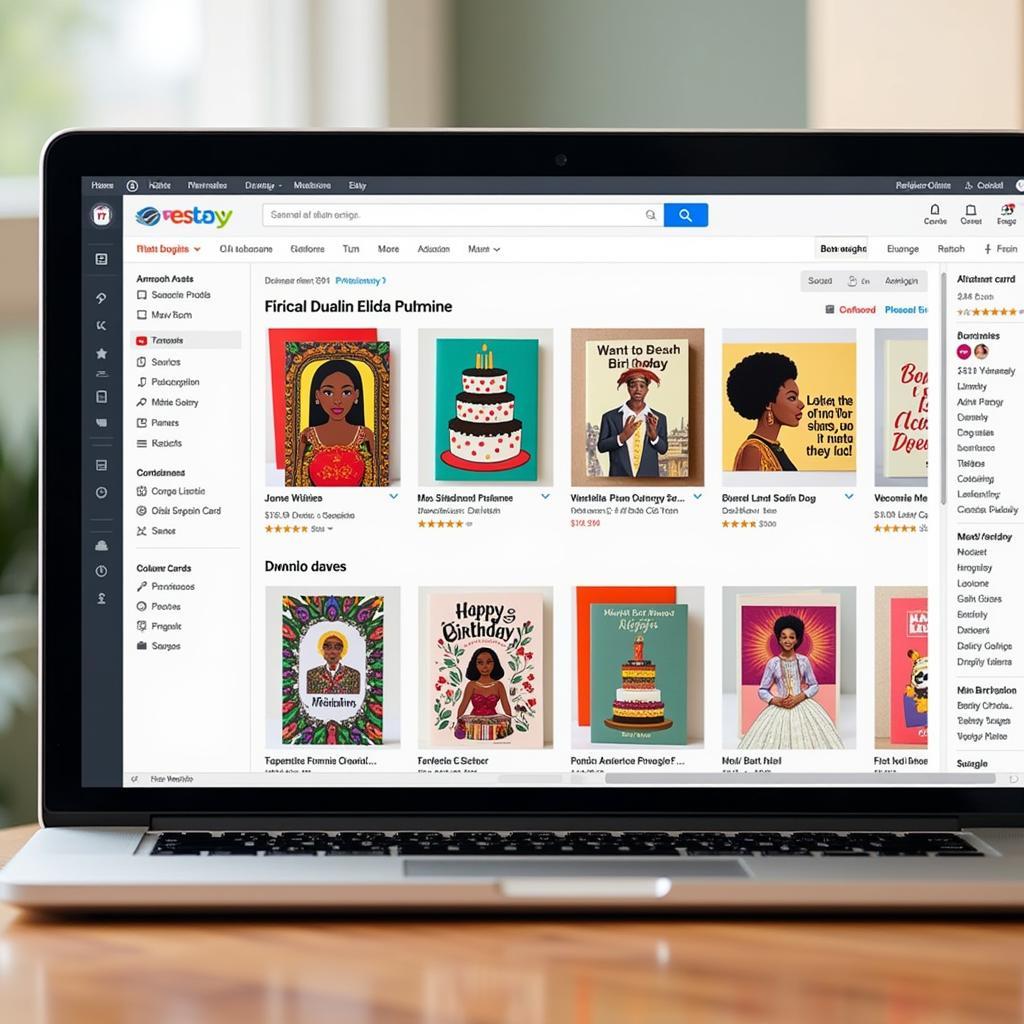African Authors and Their Works: A Journey Through Literature
African literature, a rich tapestry woven from diverse cultures, languages, and historical experiences, offers a captivating exploration of the human condition. African authors, both on the continent and in the diaspora, have crafted compelling narratives that illuminate the beauty, resilience, and complexities of Africa and its people. This exploration delves into the world of African Authors And Their Works, highlighting their significant contributions to the global literary landscape.
Early Trailblazers and the Rise of African Literature
The journey begins with recognizing the oral traditions that form the bedrock of African storytelling. Griots, the esteemed keepers of history and culture, have passed down folktales, myths, and epic poems for generations, shaping the continent’s literary identity.
 Early African Storytelling
Early African Storytelling
The transition from oral to written literature gained momentum during the colonial era, marked by the emergence of pioneers like Olaudah Equiano. His autobiography, “The Interesting Narrative of the Life of Olaudah Equiano, or Gustavus Vassa, the African,” published in 1789, stands as a powerful indictment of the transatlantic slave trade and a testament to the resilience of the human spirit.
As the 20th century dawned, African authors began reclaiming their narrative, challenging colonial perspectives and giving voice to the aspirations of independence movements. Chinua Achebe, often hailed as the father of modern African literature, offered a scathing critique of colonialism in his seminal work, “Things Fall Apart” (1958).
Themes and Styles: Reflecting the African Experience
African literature encompasses a wide range of themes and styles, reflecting the continent’s diverse cultural landscape. From the magical realism of Ben Okri’s “The Famished Road” to the poignant portrayal of apartheid in Nadine Gordimer’s “July’s People,” these works offer profound insights into the social, political, and historical realities of Africa.
Many authors explore the complexities of identity, belonging, and the African diaspora. Chimamanda Ngozi Adichie, known for her novels “Half of a Yellow Sun” and “Americanah,” masterfully captures the nuances of navigating different cultures and the immigrant experience.
A New Generation of Voices: Contemporary African Literature
Contemporary African literature continues to flourish, with a new generation of writers captivating readers worldwide. From the captivating poetry of Warsan Shire to the genre-bending novels of Nnedi Okorafor, these authors push boundaries, experiment with form, and offer fresh perspectives on contemporary issues.
They tackle themes of globalization, gender equality, climate change, and the ongoing search for identity in a rapidly changing world. These writers often blend traditional storytelling techniques with modern literary devices, creating unique and captivating narratives that resonate with a global audience.
Conclusion: A Literary Legacy Enduring and Evolving
The works of African authors offer a powerful lens through which to understand the continent’s history, culture, and the multifaceted experiences of its people. From the griots’ tales to the contemporary novels gracing international bestseller lists, African literature continues to captivate, challenge, and inspire readers worldwide. By engaging with these diverse voices, we gain a deeper appreciation for the richness and complexity of African narratives and their invaluable contributions to the global literary tapestry.


